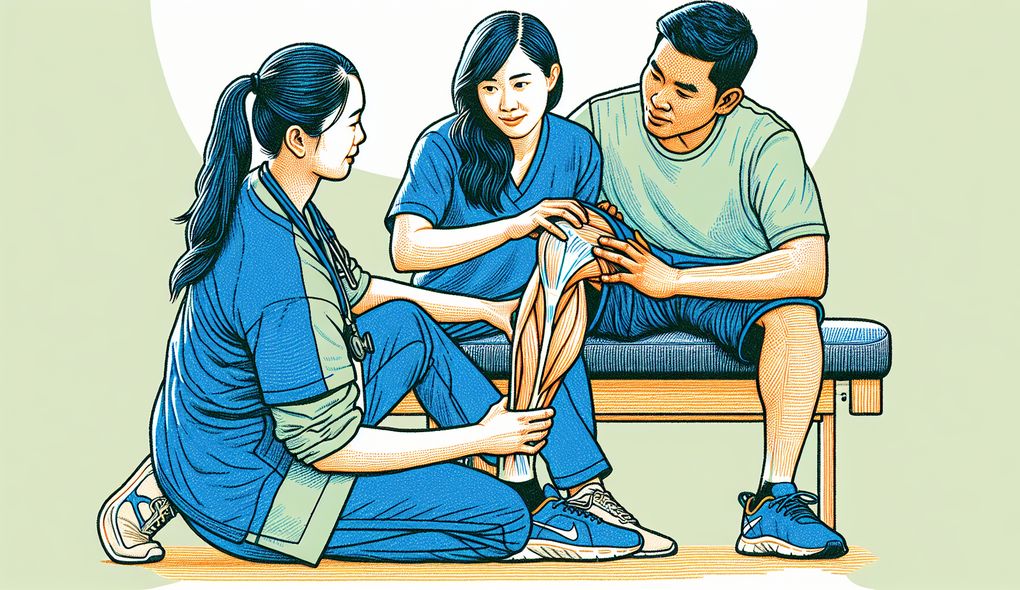Tell us about a time when you had to adapt your communication style to effectively connect with a patient.
JUNIOR LEVEL

Sample answer to the question:
I had to adapt my communication style to effectively connect with a patient when I was working with a patient who was hearing-impaired. To ensure effective communication, I used visual aids such as diagrams and written instructions to convey information. I also learned basic sign language to communicate important instructions and questions. This helped the patient understand the exercises and treatment plan better. Additionally, I made sure to speak slowly and clearly, facing the patient directly, to facilitate lip-reading. Overall, adapting my communication style allowed me to establish a strong connection with the patient and ensure they received the best possible care.
Here is a more solid answer:
I had to adapt my communication style to effectively connect with a patient who had aphasia, a language disorder that affected their ability to comprehend and express language. To ensure effective communication, I used various strategies. Firstly, I simplified my language and used shorter sentences to convey information. I also relied on non-verbal cues and gestures to enhance understanding. In addition, I utilized visual aids, such as pictures and charts, to support communication. I worked closely with a speech therapist to learn techniques to improve communication with individuals with aphasia, such as using alternative communication methods like drawing or pointing to pictures. By adapting my communication style, I was able to establish a strong rapport with the patient and effectively convey important information regarding their treatment plan and progress.
Why is this a more solid answer?
The solid answer provides specific details about the patient's condition (aphasia) and includes a comprehensive explanation of the strategies used to adapt the communication style. It also highlights the collaboration with a speech therapist and the impact of the adapted communication style. However, it could benefit from further elaboration on the patient's progress and the overall patient care provided.
An example of a exceptional answer:
I had to adapt my communication style to effectively connect with a patient who had a developmental delay and limited verbal communication skills. This required a personalized and patient-centered approach. Firstly, I conducted a thorough assessment of the patient's communication abilities and preferences, including their use of gestures, pictures, and assistive communication devices. Based on this assessment, I created a visual communication board with relevant pictures and keywords tailored to the patient's specific needs. During sessions, I used the communication board to facilitate understanding and encourage participation. I also used positive reinforcement and gestures to reinforce concepts and provide encouragement. To enhance the patient's engagement, I incorporated structured play activities into the sessions, ensuring a fun and interactive experience. By adapting my communication style to the patient's unique needs, I fostered a trusting and effective therapeutic relationship, enabling the patient to make progress in their communication skills.
Why is this an exceptional answer?
The exceptional answer provides a comprehensive and specific example of adapting communication style to connect with a patient with a developmental delay and limited verbal communication skills. It includes details about the personalized approach, the use of visual communication aids, structured play activities, and positive reinforcement. The answer also emphasizes the impact on the patient's progress and the establishment of a therapeutic relationship. It effectively demonstrates the candidate's strong communication skills, empathy, and ability to tailor care to individual patient needs.
How to prepare for this question:
- Research common communication barriers in patient care and familiarize yourself with strategies to overcome them.
- Reflect on past experiences where you had to adapt your communication style in a healthcare setting and think about the lessons learned and outcomes achieved.
- Consider taking courses or workshops on communication skills and techniques for effective patient-provider communication.
- Practice active listening and observing non-verbal cues to enhance your communication abilities.
- Stay up-to-date with current research and best practices in patient communication and be prepared to discuss them during the interview.
What are interviewers evaluating with this question?
- Effective communication and interpersonal skills
- Empathy and patience while working with patients

